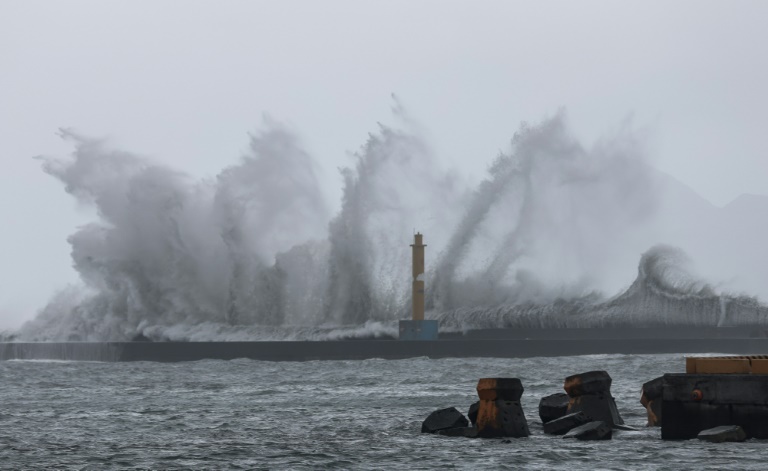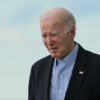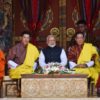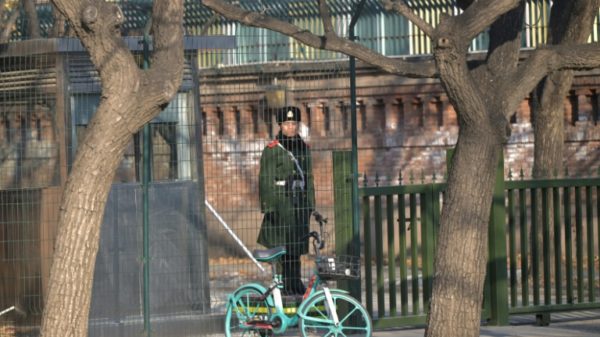One of the key geopolitical events at the beginning of 2024 is the presidential and parliamentary elections in Taiwan, scheduled for January 13. Although polls indicate that the current “tense” status quo would likely be maintained, recent verbal threats from China leave some uncertainty.
Global technological superpower
According to Hani Abuagla Senior Market Analyst at XTB MENA, Taiwan belongs to the so-called group of Asian Tigers. It is the world’s largest producer of semiconductors, so any military actions in Taiwan would lead to a technological crisis, likely causing a global economic collapse.
As an example, Abuagla cites the case of TSMC (Taiwan Semiconductor Manufacturing Company), which is the largest semiconductor manufacturer, holding almost 58 percent market share according to TrendForce, continuing its growth from previous quarters.
Samsung is in second place with a share of 12.4 percent. TSMC produces semiconductors on behalf of other companies and does not manufacture chips for its own use under its own brand. This includes companies like Apple, AMD and Nvidia. These companies can be seen more as partners than competitors.
Taiwan is also home to Acer, Asus, and Foxconn, other well-known electronics manufacturers.
Genesis of China-Taiwan conflict
In terms of the overarching conflict, Abuagla tells Digital Journal: “The conflict between China and Taiwan dates back to the 17th century when the island came under Chinese jurisdiction. Shortly before the year 1900, Taiwan fell under Japanese rule during the ongoing war. After World War II in 1945, Taiwan once again came under Chinese administration. However, dissatisfaction with the rule of the Kuomintang party led to significant unrest in Taiwan, ultimately resulting in riots. The Chinese Civil War and Mao Zedong’s victory led to the escape of the Chinese authorities to Taiwan.”
Abuagla adds: “Taiwan, also known as the Republic of China, does not recognize the authorities on the mainland. Simultaneously, it has not officially declared independence, making it challenging to maintain diplomatic relations with both China and Taiwan. China follows a policy of unity and has announced plans for reunification by 2049. Chinese authorities emphasize that any declaration of independence by Taiwan would be met with military intervention. This is why China is not in favour of the current ruling party, the Democratic Progressive Party (DPP), winning, as it could not only prolong the current deadlock but also escalate tensions.”
Polls hint at DPP staying in power
This leads on to the current political process. Abuagla observes: “Current Vice President Lai Ching-te from the DPP (Democratic Progressive Party – a Liberal Party) is running in the presidential elections. The incumbent president, Tsai Ing-wen, has held her office twice since 2016, a period marked by a significant escalation in tensions between China and Taiwan. The choice of Lai Ching-te may indicate the maintenance or even worsening of the current status. The DPP emphasizes that under its governance, the country has strengthened its autonomy and security through closer ties with countries such as the U.S.”
There are other contenders, according to Abuagla: “Another candidate with considerable support is Ko Wen-je, a member of the TPP (Taiwan People’s Party – left of centre). He is a former mayor of Taipei. The third candidate is the mayor of Taipei and the head of the main opposition party, the Kuomintang (KMT – a Conservative Party), Hou Yu-ih. This candidate, a former police chief, is running his campaign, highlighting the possibility of war. The Kuomintang is also a party originating from mainland China, claiming rights to power over the entire state.”
Abuagla points out that “it’s worth mentioning that each candidate supports maintaining the current status quo and refrains from declaring independence, which could trigger a reaction from China. However, China simultaneously employs disinformation to influence voters towards parties less anti-China, such as KMT and TPP.”
The latest ETtoday poll gives 38.9 percent support to the DPP candidate, Lai Ching-te, who has been leading since the beginning of the campaign. The same ETtoday poll gives KMT candidate Hou Yu-ih support at 35.8 percent. Ko Wen-je enjoys support at 22.4 percent.
On the possible outcome, Abuagla thinks: “It’s essential to emphasize that the candidate who receives the highest number of votes in the single first round wins, meaning they don’t necessarily need to have 50 percent of the votes. However, for several years, there hasn’t been such a large number of candidates with such evenly distributed support. Additionally, vice-presidents are elected (similar to the U.S.) during these elections.”
China wants changes in Taiwan
“China frames the election as a choice between war and peace in its disinformation campaign”, Abuagla forewarns.
With a second warning, Abuagla indicates: “In the event of the continuation of DPP’s governance, China may opt for more frequent military exercises in the vicinity of the Taiwan Strait, possibly even violating Taiwan’s airspace. Xi Jinping has hinted at the approaching moment of reunification without specifying concrete actions. It’s crucial to note that an attack on Taiwan would not only disrupt the supply of semiconductors crucial for the world but also jeopardize up to 50% of global container shipping. At present, without its semiconductor production, China would face significant problems in the event of an attack on Taiwan.”
On the propaganda side, Abuagla puts forward: “China is also attempting to influence businesses by emphasizing that unity would lead to even greater expansion of technological companies worldwide. On the other hand, TSMC has factories in other parts of the world, currently investing in the construction of two large factories in Japan and the U.S.
Abuagla’s closing concern is: “Regardless of who wins the elections, a significant improvement in relations with China is unlikely.”
In terms of economics: “From a market perspective, it is crucial to closely monitor the performance of TSMC’s stock and the Chinese yuan. While the elections themselves shouldn’t alter the current market situation, an escalation of the conflict could significantly harm Taiwanese company stocks and lead to further issues for the yuan, despite not being a freely floating currency. Simultaneously, if there is any attempt at dialogue by Taiwan towards China post-election, it could lead to an improvement in supply chain situations, potentially lowering prices of technological products. This, in turn, might impact TSMC’s stock, with the possibility of a resurgence in its value, considering its sideways trend over the past year.”














